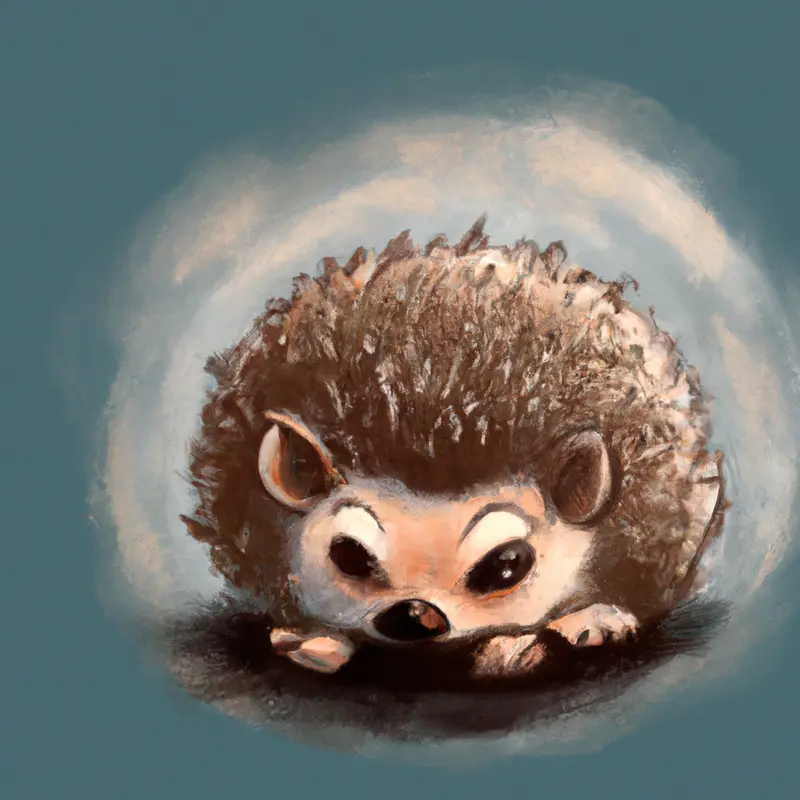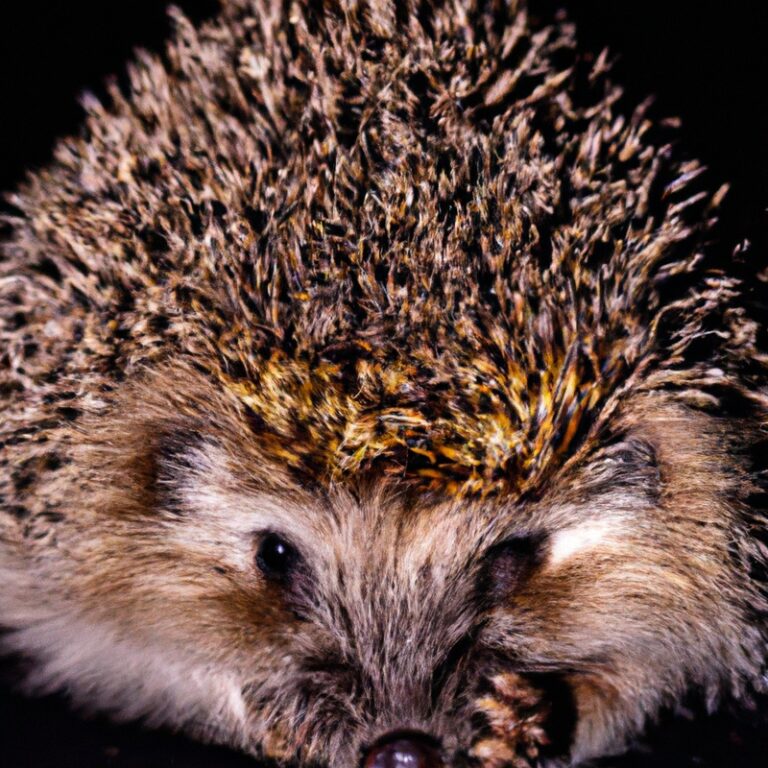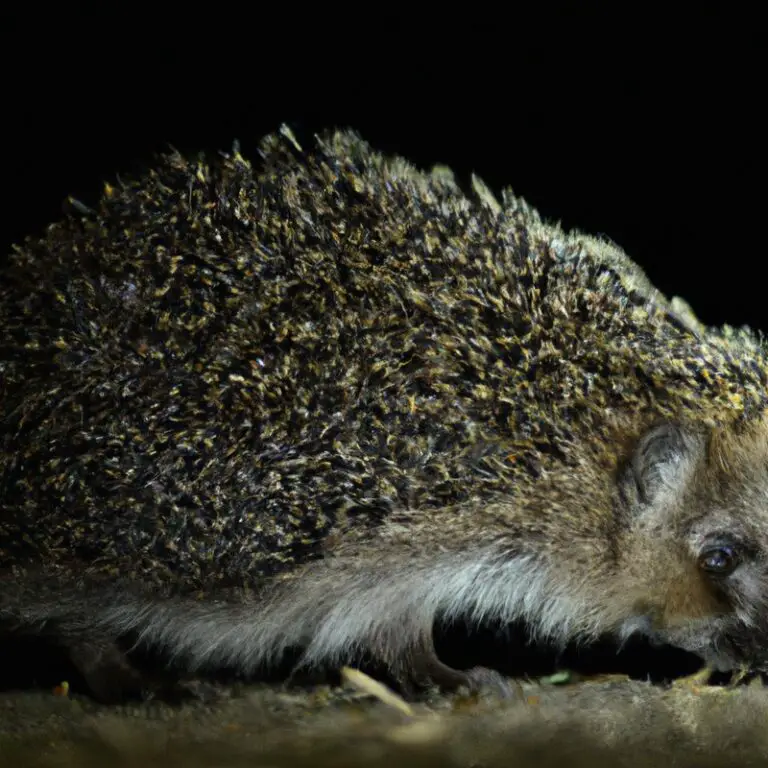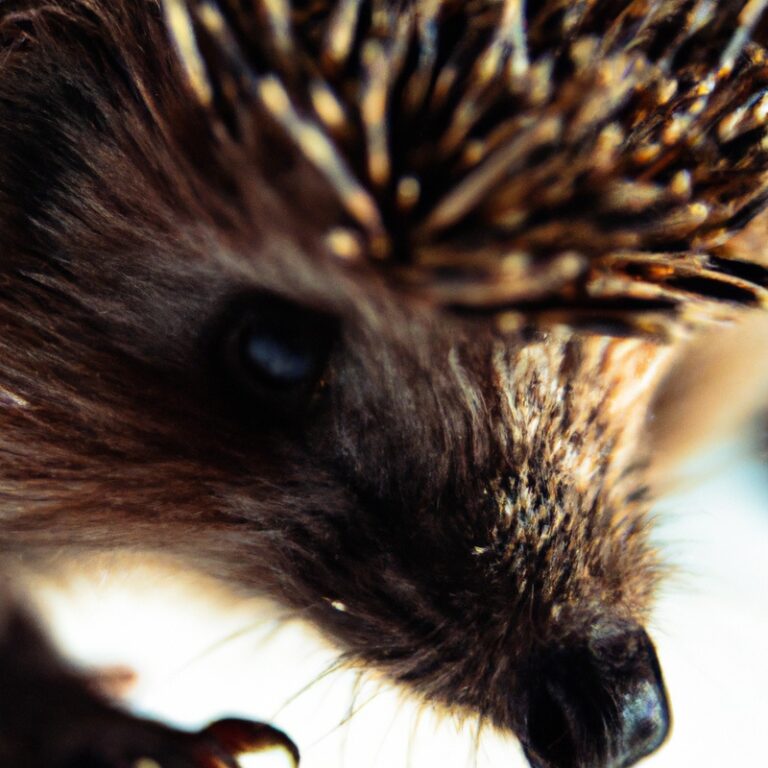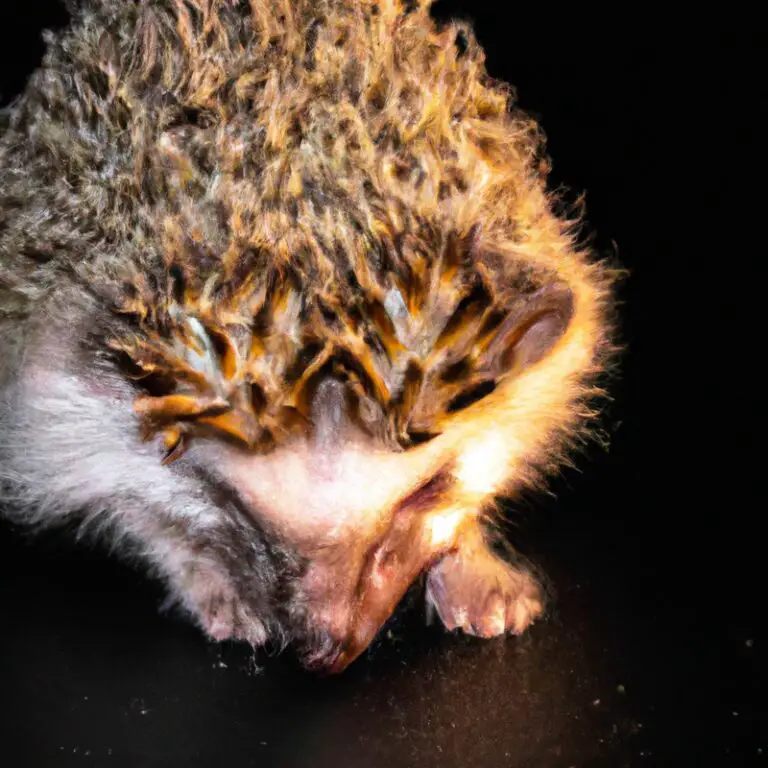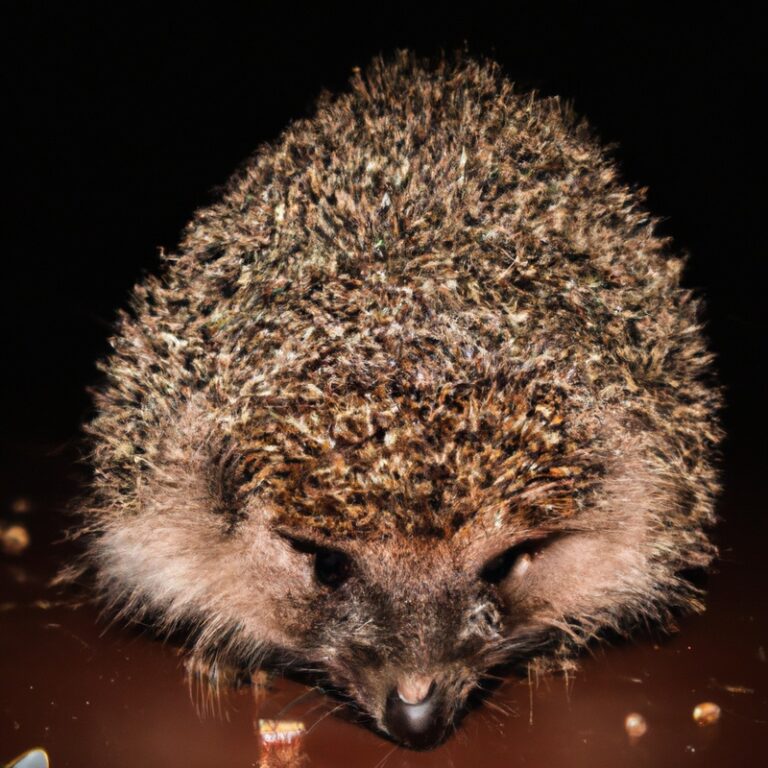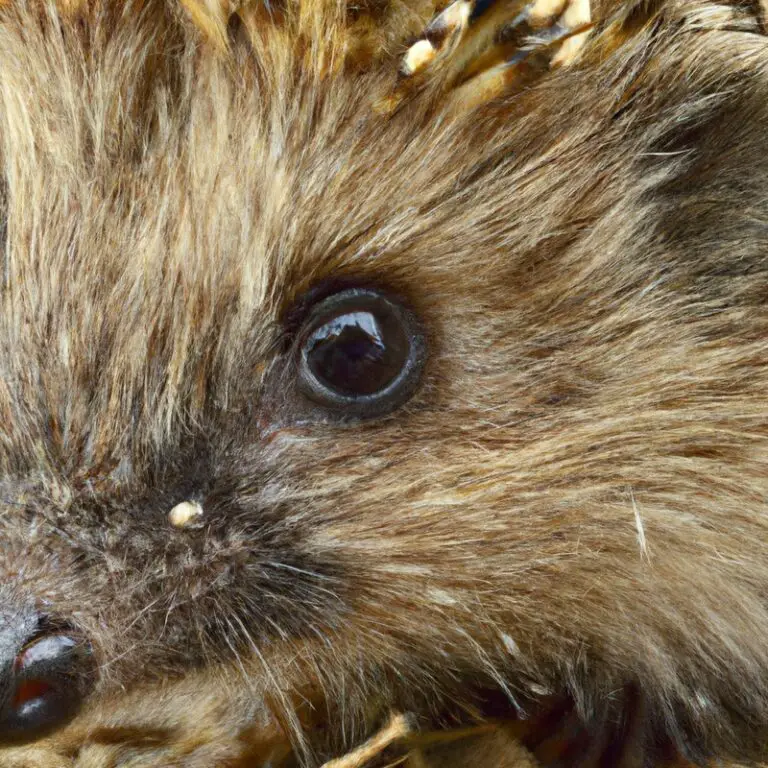What Is The Role Of Hedgehogs In Regulating Insect Populations?
Key Takeaways:
- Hedgehogs play a crucial role in controlling insect populations by preying on various pests.
- Their diet mainly consists of insects like beetles, caterpillars, and slugs, helping to maintain a natural balance.
- The presence of hedgehogs can lead to reduced crop damage caused by insect infestations.
- Conservation efforts to protect hedgehog populations can contribute to minimizing the need for harmful pesticides.
Have you ever wondered how nature keeps a balance in the insect world? It turns out that hedgehogs, those adorable prickly creatures, play a crucial role.
These insectivores have a voracious appetite for insects, so much so that they can significantly impact insect populations.
From feasting on beetles and caterpillars to hunting down slugs and worms, hedgehogs are nature’s pest controllers. In this article, we’ll dive into the fascinating world of hedgehogs, exploring their hunting habits, their impact on insect populations, and how they can even be allies in our agricultural ecosystems.
So get ready to unravel the secrets of these little heroes and discover the incredible role they play in regulating insect populations.
| Role of Hedgehogs in Regulating Insect Populations |
|---|
| Hedgehog Habitat |
| Feeding Habits |
| Impact on Insect Populations |
| Pros |
| Cons |
The Basics of Insect Populations
Understanding insect populations and the factors that affect them is essential for studying the role of hedgehogs in regulating insects.
Understanding insect populations
Understanding insect populations is important for several reasons.
Insects play a crucial role in ecosystems, supporting the food web and pollinating plants.
The population of insects can fluctuate due to various factors such as climate change, habitat loss, and pesticide use.
By studying insect populations, scientists can gain insights into the health of ecosystems and potential impacts on other species.
Understanding these populations can help inform conservation efforts and sustainable pest management strategies.
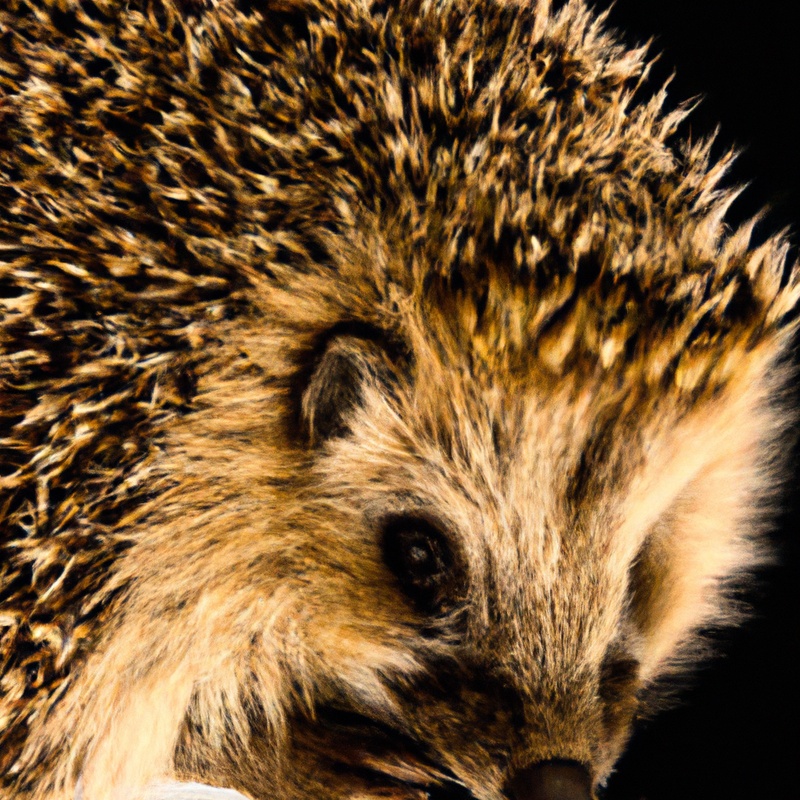
Factors that affect insect populations
There are various factors that can affect insect populations. Some of the key factors include:
- Climate: Insects are highly influenced by climate conditions such as temperature, precipitation, and humidity. Changes in climate patterns can significantly impact their breeding, survival, and overall population size.
- Habitat loss: Destruction or alteration of natural habitats due to deforestation, urbanization, or agriculture can negatively impact insect populations. With the loss of their native habitats, insects may struggle to find suitable resources and breeding sites.
- Pesticides: The use of pesticides in agriculture and pest control can have detrimental effects on insect populations. These chemicals may directly kill insects or disrupt their reproductive processes, leading to a decline in their numbers.
- Competition and predation: Insects face competition from other species for resources such as food and shelter. Additionally, predators like birds and spiders can have a significant impact on insect populations by consuming them.
- Disease and parasites: Insects are susceptible to various diseases and parasites that can cause significant declines in their populations. These include viruses, bacteria, fungi, and parasitic organisms that infect and weaken the insects.
- Genetic factors: The genetic diversity within insect populations plays a crucial role in their ability to adapt to changing environments and withstand various threats. Reduced genetic diversity can make populations more susceptible to extinction.
Understanding and addressing these factors is essential for maintaining healthy insect populations, which play vital roles in ecosystems as pollinators, decomposers, and as a food source for other organisms.
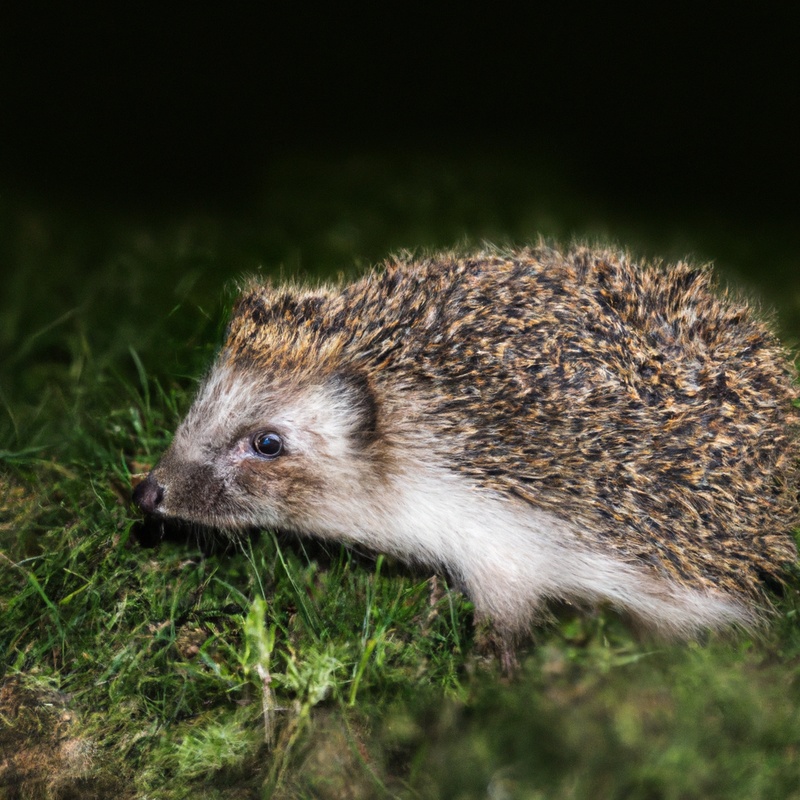
Hedgehogs as Insectivores
Hedgehogs are natural insectivores, meaning their primary diet consists of insects. This makes them effective at regulating insect populations in their habitats.
What do hedgehogs eat?
Hedgehogs are insectivores, which means their diet primarily consists of insects. They have a diverse palate and enjoy munching on insects such as beetles, caterpillars, slugs, and worms.
Hedgehogs are also known to eat small mammals, birds, eggs, and amphibians if they come across them.
However, insects make up the majority of their diet. So, if you want to attract hedgehogs to your garden, providing them with a variety of insects would be a great idea!
Hunting habits of hedgehogs
Hedgehogs are skilled hunters of insects, which make up a significant portion of their diet. They use their excellent sense of smell to locate their prey, and once they find it, they will use their sharp teeth and claws to catch and eat it.
Hedgehogs have a preference for nocturnal insects, as they are primarily active at night.
Their hunting habits play a crucial role in regulating insect populations, helping to maintain the balance of ecosystems. They are ecologically valuable creatures that contribute to pest control in a natural and effective way.
How hedgehogs can regulate insect populations
Hedgehogs can regulate insect populations naturally through their diet. As insectivores, hedgehogs rely heavily on insects for their nutrition.
They eat a variety of insects, including beetles, caterpillars, and slugs, which are commonly considered pests in gardens and agricultural areas.
By consuming these insects, hedgehogs help to reduce their numbers and control their populations. This natural predation can be an effective and eco-friendly way to manage insect pests without the use of chemical pesticides.
Hedgehog Predation on Insects
Hedgehogs play a key role in regulating insect populations by preying on a variety of insects. They use their keen senses to locate and capture their prey.
Types of insects hedgehogs eat
Hedgehogs are natural insectivores and have a taste for a variety of insects. Some common insects that hedgehogs eat include beetles, ants, caterpillars, earthworms, millipedes, and slugs.
They are also known to eat spiders and other small invertebrates.
Hedgehogs use their keen sense of smell to locate and capture these insects, making them effective predators in controlling insect populations. Their diet primarily consists of insects, supplemented with certain fruits and plants.
How hedgehogs locate and capture insects
Hedgehogs locate insects primarily using their acute sense of smell and hearing, rather than relying on their limited vision. They have a keen sense of smell that allows them to detect insects from a considerable distance.
Once they locate their prey, hedgehogs use their powerful front claws and snout to dig and root around in search of insects.
They can also capture insects by using their sharp teeth to snatch them from the ground or vegetation. Hedgehogs are opportunistic feeders and will often explore different areas to find a variety of insects to eat.
Their ability to locate and capture insects helps regulate insect populations in their habitat, making them valuable contributors to the ecosystem.
Hedgehog hunting strategies
Hedgehogs employ various hunting strategies to catch their prey.
They have an acute sense of smell, which helps them locate insects hidden in the ground or foliage.
Hedgehogs use their sharp teeth and strong jaws to capture and kill insects.
They also rely on their excellent hearing to detect movement and locate potential prey.
Once they find their target, hedgehogs use their long snouts to root out insects from the ground or bushes.
They are skilled at using their sharp claws to dig and uncover hidden insects.
Hedgehogs are adaptable hunters and can adjust their strategies depending on the type of insect they are pursuing.
So, whether it’s digging, sniffing, or listening, hedgehogs have an arsenal of tactics to successfully hunt and feast on insects.
The Impact of Hedgehogs on Insect Population Regulation
Hedgehogs play a crucial role in regulating insect populations.
Research on hedgehog predation
Research on hedgehog predation has shown that hedgehogs play a significant role in regulating insect populations.
Studies have observed that hedgehogs primarily feed on insects such as beetles, slugs, and caterpillars.
This predation helps control the population of these pests in ecosystems.
The presence of hedgehogs in an area can lead to a decrease in insect numbers, which can have a positive impact on surrounding plants and other organisms.
It demonstrates the important role hedgehogs play in maintaining ecological balance and biodiversity.
Hedgehogs as Natural Pest Controllers
Hedgehogs play an important role in controlling pests naturally. They can help keep insect populations under control.
Benefits of hedgehogs as pest controllers
Hedgehogs provide several benefits as natural pest controllers. They primarily feed on insects such as slugs, beetles, and snails, which are known to damage crops and gardens.
By keeping these pest populations in check, hedgehogs help to protect plants and reduce the need for chemical insecticides.
Additionally, hedgehogs also eat ticks and fleas, which can be harmful to both humans and pets. Their natural pest control abilities make them valuable allies in maintaining a healthy ecosystem.
Hedgehogs and agricultural ecosystems
Hedgehogs play a crucial role in agricultural ecosystems by helping to control pest populations. These small, spiky creatures have a voracious appetite for insects, such as slugs, snails, and beetles, which can damage crops.
By feasting on these pests, hedgehogs help farmers reduce the need for chemical pesticides, promoting a more sustainable and eco-friendly approach to pest control.
Their presence in agricultural environments can help maintain a healthy balance between pests and beneficial organisms, ultimately supporting crop productivity. Hedgehogs truly are valuable allies in the world of agriculture!
Conservation and Protection of Hedgehogs
To ensure the conservation and protection of hedgehogs, there are various measures that can be taken.
Threats to hedgehog populations
Hedgehog populations are facing several threats that have contributed to their decline.
These threats include habitat loss due to urbanization and agricultural expansion, as well as the use of pesticides in farming, which reduces the availability of their food sources.
Additionally, road traffic accidents and the presence of predators, such as badgers and foxes, also pose risks to hedgehog populations.
It is important to address these threats and take measures to protect hedgehog habitats and promote their conservation.
How to support hedgehog conservation efforts
To support hedgehog conservation efforts, there are several things you can do:
- Create a hedgehog-friendly garden by providing shelter and food. Leave areas of your garden wild, with piles of leaves, logs, and brush to create hedgehog homes. Leave out shallow dishes of water and put out cat/dog food or specialized hedgehog food.
- Make your garden safe for hedgehogs by checking for hazards like slug pellets, netting, and ponds without escape routes. Ensure fences have hedgehog-sized holes to allow them to move freely.
- Spread awareness about hedgehog conservation by educating others. Share information on social media, participate in local community events, or join hedgehog conservation groups.
- Report hedgehog sightings to local wildlife organizations or projects. This data helps researchers track populations and inform conservation efforts.
- Support local hedgehog rescue centers or wildlife hospitals. They play a vital role in rehabilitating sick, injured, or orphaned hedgehogs and releasing them back to the wild.
Remember, every little action counts when it comes to supporting hedgehog conservation efforts!
Frequently Asked Questions
Do hedgehogs eat all types of insects?
Hedgehogs are known for their insect-eating abilities, but they don’t eat all types of insects. They primarily feed on insects like beetles, caterpillars, grasshoppers, and worms, which make up the majority of their diet.
However, they may not eat certain insects like ants or bees due to their defensive mechanisms.
Additionally, hedgehogs can also consume other foods such as slugs, snails, and small vertebrates. So while hedgehogs play a role in regulating insect populations, they have specific preferences when it comes to their insect meals.
Can hedgehogs be kept as pets?
Hedgehogs can indeed be kept as pets, but it’s important to consider a few factors.
First, they require a specialized diet consisting of insectivore food and occasional treats.
Second, hedgehogs are nocturnal animals, so they may not be as active during the day.
Providing them with a quiet and comfortable enclosure is essential.
Lastly, hedgehogs have specific temperature requirements and need a warm habitat to thrive.
It’s essential to do thorough research and consult with a veterinarian experienced in hedgehog care before deciding to keep one as a pet.
How can I attract hedgehogs to my garden?
If you want to attract hedgehogs to your garden, there are a few simple things you can do. Firstly, providing shelter is important, so try adding some hedgehog houses or piles of leaves and brush where they can rest and hibernate.
Secondly, make sure there is a source of fresh water available, such as a shallow dish or a small pond.
Additionally, create a hedgehog-friendly environment by leaving some areas of your garden wild and not using pesticides or slug pellets. Finally, leaving out some food, like specialist hedgehog food or wet cat food, can help entice them to visit.
Final Verdict
Hedgehogs play a vital role in regulating insect populations through their natural insectivorous diet and hunting habits.
By consuming a wide variety of insects, including pests, hedgehogs help maintain a balanced ecosystem.
Their ability to locate and capture insects, coupled with their effective hunting strategies, further aid in controlling insect populations.
The research suggests that hedgehogs have a significant impact on insect populations, making them valuable natural pest controllers.
To support hedgehog conservation efforts and benefit from their pest control abilities, it is crucial to protect their habitats and create hedgehog-friendly environments.

